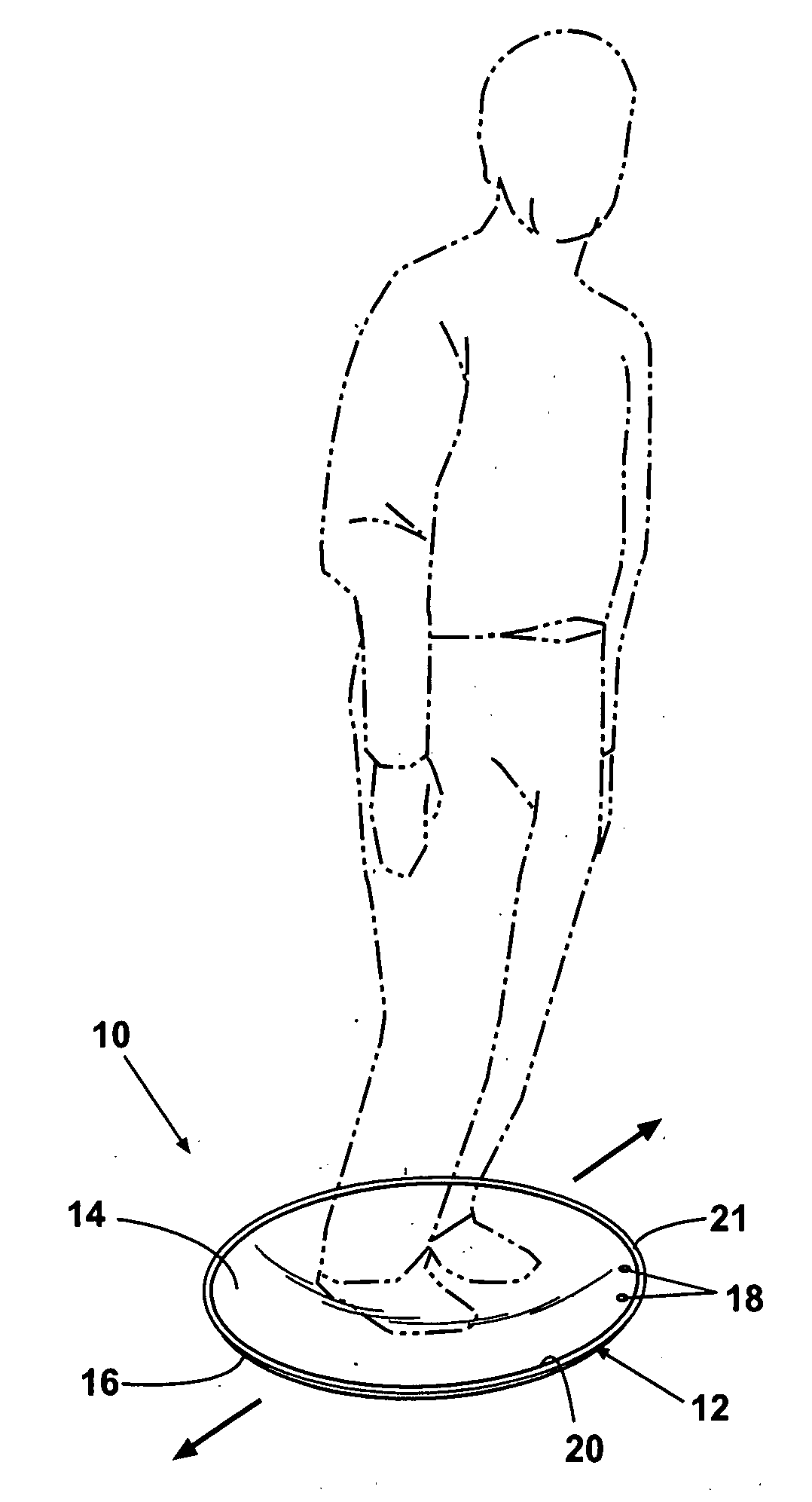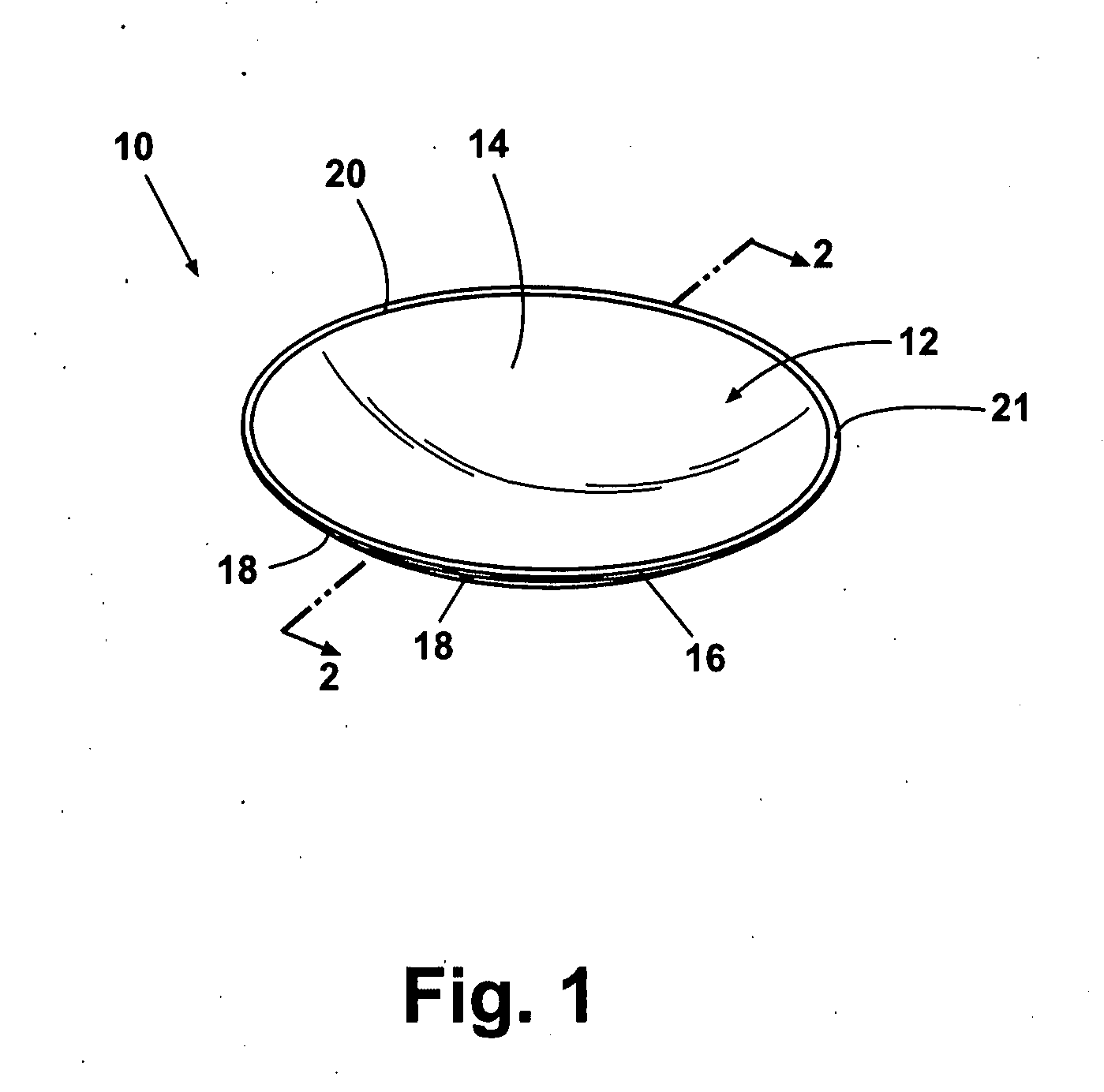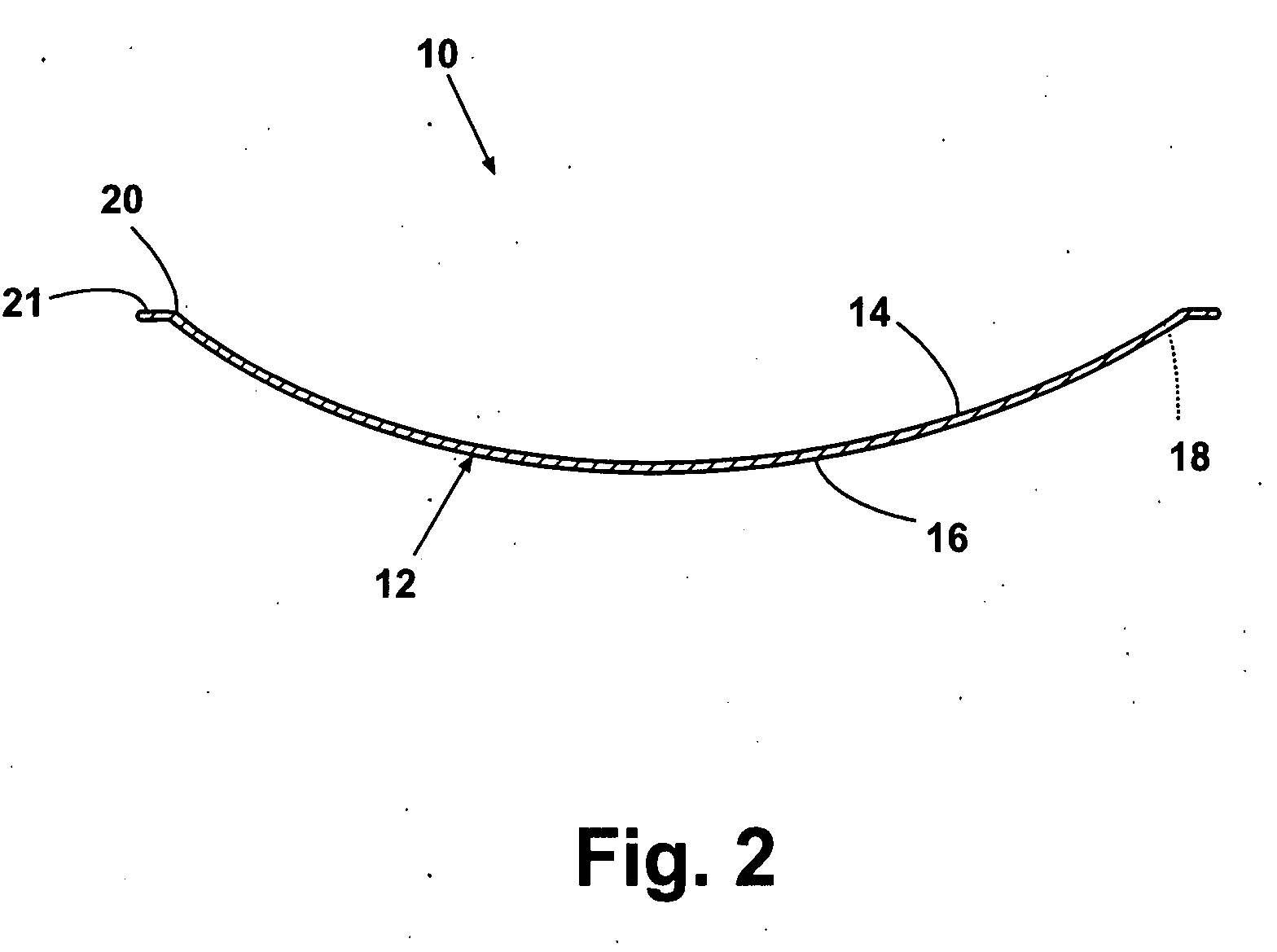Balance Training and Exercise Device
- Summary
- Abstract
- Description
- Claims
- Application Information
AI Technical Summary
Benefits of technology
Problems solved by technology
Method used
Image
Examples
Embodiment Construction
[0028]Referring to the Figures and particularly to FIGS. 1-3, a balance training and exercise device 10 comprises a rigid, shallow, and concave disc 12 having an upper concave surface 14 and a lower convex surface 16. The disc 12 is reasonably thin and has a size adapted to accommodate the feet or knees of a large adult. The disc 12 can be made out of plastic, aluminum, or steel with varying degrees of rigidity. The disc 12 can be integrally formed in a manner which will preclude any perceivable deformation of the disc 12 when stood or kneeled upon by an individual of any size. If the disc 12 is deformable, the disc 12 is used with a pad 30 in order to prevent deformation, as is described hereinafter. Unlike a conventional children's snow disc, the disc 12 is substantially rigid to an extent that it maintains its shape when used and does not become dented or deformed as a result of applying weight. The disc 12 is formed of a relatively strong material suitable for this purpose. An e...
PUM
 Login to View More
Login to View More Abstract
Description
Claims
Application Information
 Login to View More
Login to View More - R&D
- Intellectual Property
- Life Sciences
- Materials
- Tech Scout
- Unparalleled Data Quality
- Higher Quality Content
- 60% Fewer Hallucinations
Browse by: Latest US Patents, China's latest patents, Technical Efficacy Thesaurus, Application Domain, Technology Topic, Popular Technical Reports.
© 2025 PatSnap. All rights reserved.Legal|Privacy policy|Modern Slavery Act Transparency Statement|Sitemap|About US| Contact US: help@patsnap.com



